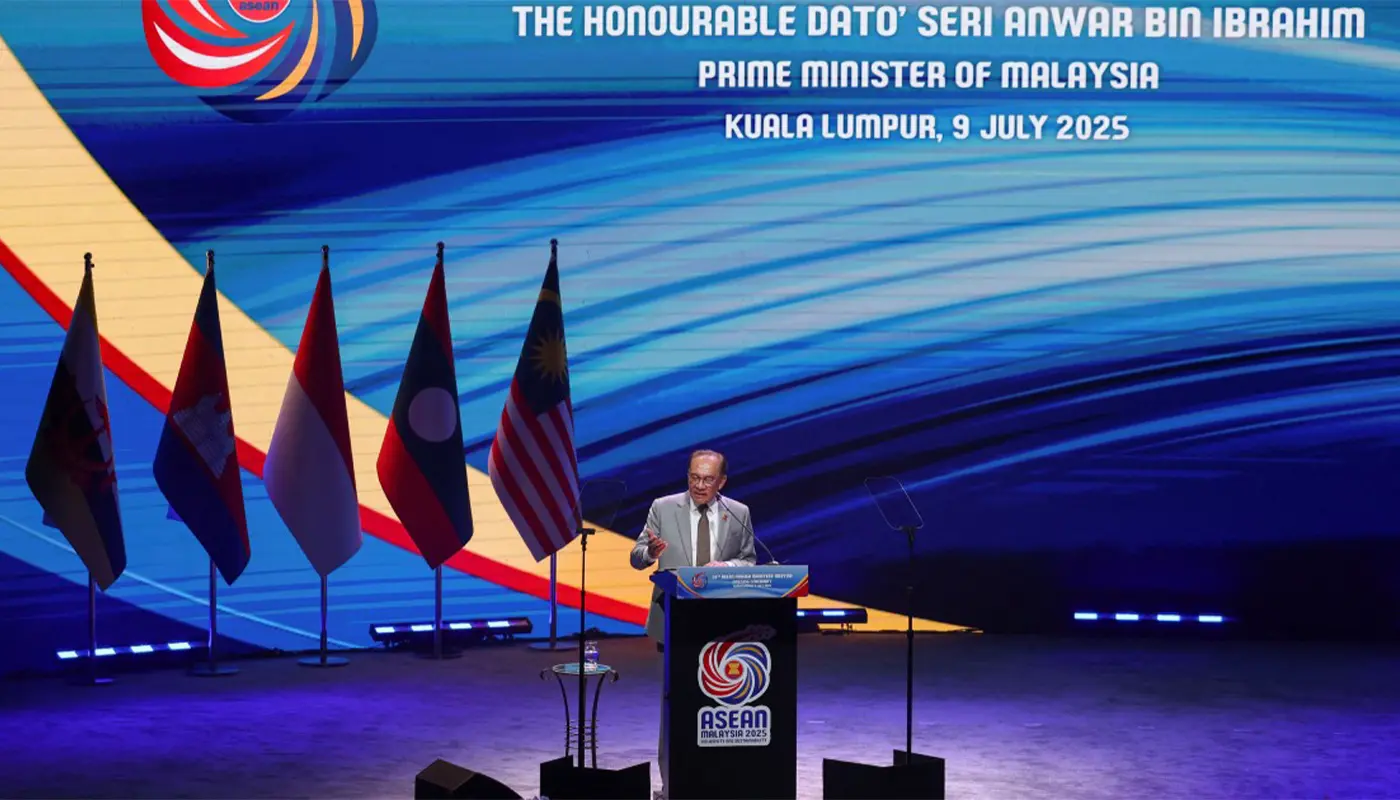KUALA LUMPUR – Malaysia has called for accelerated economic integration among ASEAN members as global tariff volatility threatens the region’s export-dependent economies. The push comes amid uncertainty over U.S. and European trade policies following new protectionist measures.
Trade Minister Tengku Zafrul Aziz unveiled a 5-point plan at the ASEAN Economic Ministers’ retreat:
- Fast-track the ASEAN Trade in Goods Agreement (ATIGA) upgrade
- Expand local currency settlements to bypass dollar dependency
- Launch ASEAN-wide QR payment connectivity by 2026
- Harmonize food safety standards across 10 member states
- Establish crisis response mechanism for tariff shocks
“We must reduce overreliance on Western markets,” Aziz stated, noting ASEAN intra-trade remains at just 22% compared to the EU’s 64%. “Harmonizing our standards and payment systems will cushion against external shocks.”
Immediate Triggers:
- Potential 60% U.S. tariffs on Chinese goods impacting ASEAN supply chains
- EU Carbon Border Adjustment Mechanism (CBAM) taking effect January 2026
- 35% U.S. tariff imposed on Bangladesh apparel (July 2025)
ASEAN Secretariat data reveals 38% of the bloc’s exports remain vulnerable to U.S./EU policy shifts. The Malaysian initiative gained support from Indonesia and Vietnam, though Cambodia expressed concerns about technical capacity.
Sector Impacts:
- 🇲🇾 Malaysia: Electronics (33% of exports), palm oil
- 🇹🇭 Thailand: Automotive parts, hard disk drives
- 🇻🇳 Vietnam: Electronics, textiles, footwear
“ASEAN must become its own growth engine,” urged Dr. Yeah Kim Leng of Sunway University, citing projections that tariff disruptions could cost the region $280 billion in export losses through 2027. Ministers will formalize proposals at October’s ASEAN Summit in Laos.





